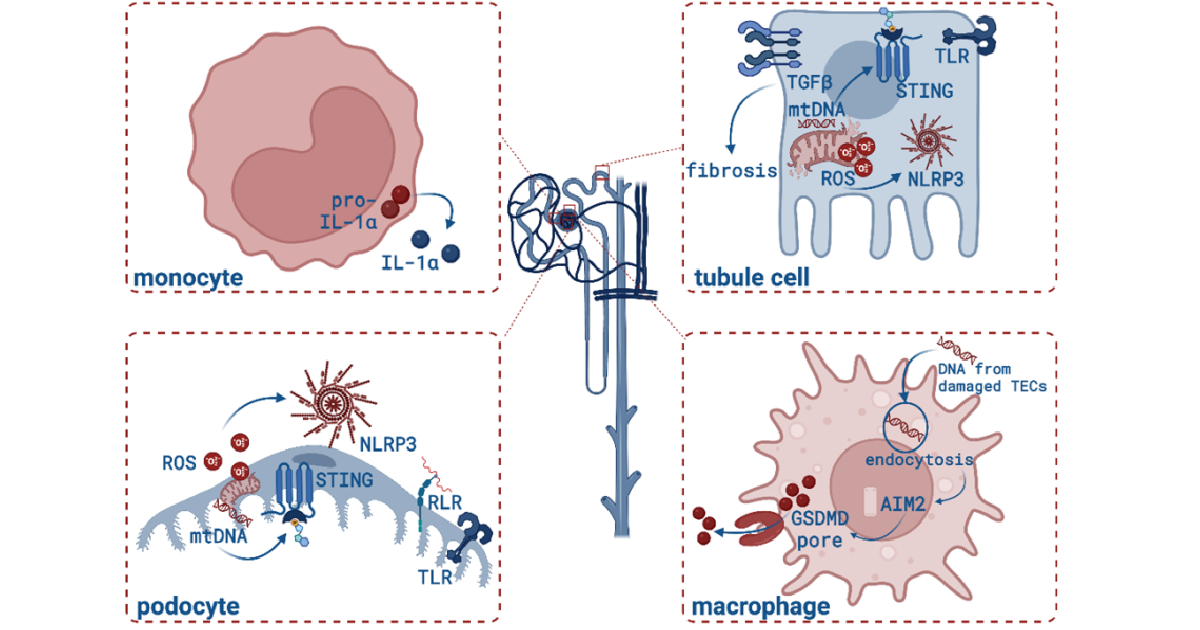- 5.2Impact Factor
- 10.5CiteScore
- 16 daysTime to First Decision
Role of Innate Immunity in Chronic Kidney Diseases
This special issue belongs to the section “Cellular Immunology“.
Special Issue Information
Dear Colleagues,
Chronic kidney disease (CKD) is a worldwide health problem, with a global estimated prevalence of 16% and costs of USD 7.1 million for renal replacement therapy for patients with end-stage kidney disease. Among the multiple pathogenic mechanisms responsible for CKD, deregulated inflammation, oxidative stress, and immune system activation have deserved significant attention in recent years. More precisely, sterile inflammation triggered by the activation of the innate immune system has been shown to be an important driver of CKD. While our understanding of the innate immune system’s components and ligands, as well as its activation and regulation, has substantially improved in recent years, finding new drug targets and implementations of anti-inflammatory treatments for patients with CKD remains a challenge. This Special Issue will focus on different aspects of innate immunity involvement in CKD development and progression, including molecular, biochemical, and physiological mechanisms. We welcome original basic research and clinical manuscripts, reports on new technologies, methodological reports, and review articles related to the role of innate immunity in CKD.
Dr. Alla Mitrofanova
Guest Editor
Manuscript Submission Information
Manuscripts should be submitted online at www.mdpi.com by registering and logging in to this website. Once you are registered, click here to go to the submission form. Manuscripts can be submitted until the deadline. All submissions that pass pre-check are peer-reviewed. Accepted papers will be published continuously in the journal (as soon as accepted) and will be listed together on the special issue website. Research articles, review articles as well as short communications are invited. For planned papers, a title and short abstract (about 250 words) can be sent to the Editorial Office for assessment.
Submitted manuscripts should not have been published previously, nor be under consideration for publication elsewhere (except conference proceedings papers). All manuscripts are thoroughly refereed through a single-blind peer-review process. A guide for authors and other relevant information for submission of manuscripts is available on the Instructions for Authors page. Cells is an international peer-reviewed open access semimonthly journal published by MDPI.
Please visit the Instructions for Authors page before submitting a manuscript. The Article Processing Charge (APC) for publication in this open access journal is 2700 CHF (Swiss Francs). Submitted papers should be well formatted and use good English. Authors may use MDPI's English editing service prior to publication or during author revisions.
Keywords
- CKD
- glomeruli
- tubules
- sterile inflammation
- innate immunity
- pattern recognition receptors (PRRs)
- damage-associated molecular patterns (DAMPs)
- STING
- Toll-like receptors
- RIG-I
- NLRP

Benefits of Publishing in a Special Issue
- Ease of navigation: Grouping papers by topic helps scholars navigate broad scope journals more efficiently.
- Greater discoverability: Special Issues support the reach and impact of scientific research. Articles in Special Issues are more discoverable and cited more frequently.
- Expansion of research network: Special Issues facilitate connections among authors, fostering scientific collaborations.
- External promotion: Articles in Special Issues are often promoted through the journal's social media, increasing their visibility.
- e-Book format: Special Issues with more than 10 articles can be published as dedicated e-books, ensuring wide and rapid dissemination.

